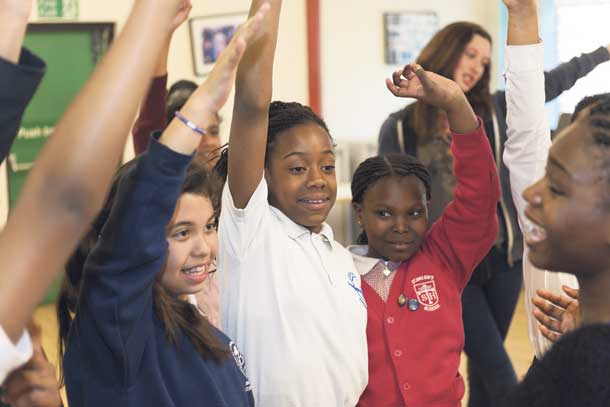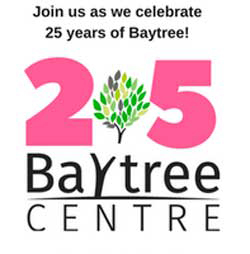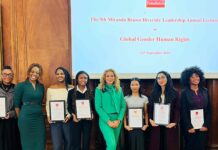
Children enjoying activities at the Baytree Centre
The Baytree Centre, a charity working with and empowering women and girls through education and skills development programmes, is celebrating its 25 years in Brixton
The Baytree Centre based on Brixton Road celebrated its 25 years with a party, art auction and a frock swap at Brixton East that raised £3,542.
It needs every penny it can get. Many other charities with similar aims have been forced to close in the current climate of austerity.
Baytree is there for women and girls who lack language skills, can’t access employment, live in poverty or poor housing, suffer racism and discrimination, abuse or family breakdown.
It has supported 10,000 women and families over the years. With the equivalent of fewer than 10 full-time staff, the centre’s 150 volunteers are its heart. Their commitment keeps it going to support the 800 to 1,000 women and girls who come through the door each year.
“They find Baytree by word of mouth,” says Mae Perreño, Baytree’s director. “Their lives are not that different from mine. I can’t afford to turn my back.” Although 100 different languagues are spoken “the universal language of Baytree is the smile”.
After spending time at Baytree, 34 per cent of women end up in employment and 63 per cent go on to full-time education.
 Feven and Danait, both 16, are unaccompanied refugees from Eritrea. They live in foster care and are supported by Baytree. The girls spoke hardly any English and joined the centre’s Into School programme. Both went on to college.
Feven and Danait, both 16, are unaccompanied refugees from Eritrea. They live in foster care and are supported by Baytree. The girls spoke hardly any English and joined the centre’s Into School programme. Both went on to college.
Women like them are matched with mentors who support them in managing their workload while they are adapting to a new school system.
Feven says: “I am happy to be in England. It is very nice. I don’t have my family but I have a foster family and Baytree and England is freedom!”
Danait’s dream is to become a nurse and Feven wants to become a doctor.
Jocasta is an 18-year-old Portuguese/Angolan immigrant who arrived in the UK at the age of 17. She had left her parents and sisters to move to London to live with her aunt and uncle. She spoke very little English and felt isolated and vulnerable and was unable to find a place in school. She joined Baytree’s Into School programme, attending English classes three times a week as well as art and cookery once a week.
Her mentor helped her apply to schools and adjust to life in the UK. “I came with a low self-esteem. I started to make my first friends here in Baytree and everything changed. I am more confident now.
“You feel good in Baytree, and that’s why I really enjoy studying here. You feel like family. You feel a lot of love at Baytree.
“I have never felt this much love, also not in my family and that made me realise that we women can do everything.”
Jocasta wants to go to university to study music. The Baytree team is looking into ways of supporting her with singing and piano lessons to foster her talent while she is at college.
Mariam, 14, and her mother Abeba from Ethiopia joined the Peach programme which works with families. She has two brothers.
Mother and daughter both benefited from mentoring and support provided at the centre. Mariam got help with her schoolwork when she was struggling and Abeba received support and mentoring to tackle a controlling husband and chaotic family life. Baytree’s parent coordinator said: “Abeba is a different woman now. She is more confident, stands up for herself, and radiates dignity and self-respect.”
Her dream is to open a cake-decorating business and she is now receiving one-to-one lessons to improve her handwriting.
To find out more or to volunteer visit www.baytreecentre.org.




